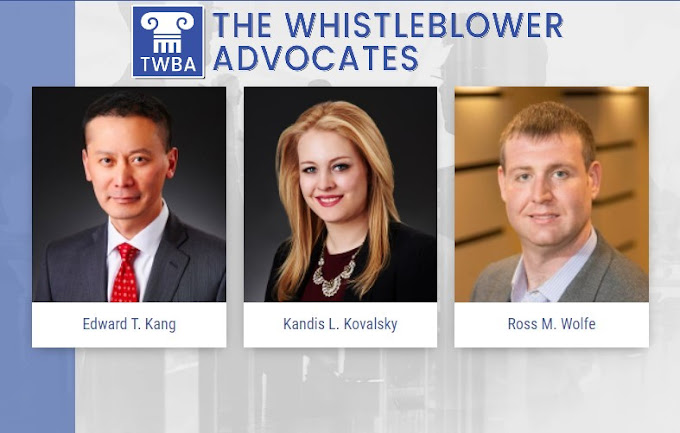Philadelphia Whistleblower attorneys, Kang Haggerty’s Edward Kang, Kandis Kovalsky, Micah Buchdahl, Ross Wolfe, Sofia Calabrese, and Justin Serianni attended the 2023 TAF (The Anti-Fraud) Coalition Conference on October 18-20, 2023 at the Georgetown Washington Marriott in Washington, D.C.
The conference, which was attended by hundreds of whistleblower attorneys, included a three-day deep dive into the latest developments of the False Claims Act (FCA) and other whistleblower programs, strategies to advance the practice of representing whistleblowers, and a celebration of the leaders in the Relator’s bar. Kang Haggerty was a breakfast sponsor of the conference.
The False Claims Act, colloquially known as the Lincoln Law, is a pivotal federal statute aimed at holding individuals and entities accountable for defrauding governmental programs. It enables whistleblowers, also referred to as relators, to file lawsuits on behalf of the government against those suspected of falsely claiming government funds. This mechanism incentivizes the disclosure of fraudulent activities by offering whistleblowers a portion of the recovered funds as a reward. Furthermore, the Act imposes treble damages, meaning defendants may be liable for up to three times the amount of damages sustained by the government. Consequently, the False Claims Act plays a crucial role in combatting fraud against the government and safeguarding taxpayer funds.
The Taxpayers Against Fraud Education Fund (TAF) Coalition is a non-profit organization dedicated to advocating for whistleblowers' interests and combating fraud against both taxpayers and the government.
Utilization of the False Claims Act spans various forms of fraudulent activities, including healthcare, defense contracting, and financial fraud. Whistleblowers, typically current or former employees of implicated entities, play a pivotal role in initiating False Claims Act cases by disclosing allegations of fraud. Government intervention may occur in such cases, with governmental bodies assuming control of the litigation process. Successful prosecution under the Act can result in fines, penalties, and damages against the defendant, with whistleblowers receiving a share of the recovered funds as a reward. Overall, the False Claims Act serves as a deterrent against fraudulent activities targeting government programs and promotes transparency in taxpayer fund utilization.
The False Claims Act is a versatile legal tool utilized by a variety of stakeholders, including whistleblowers, government agencies, and legal professionals. Whistleblowers often initiate False Claims Act lawsuits to expose fraudulent activities within their organizations and seek legal recourse. Government agencies, such as the Department of Justice, also leverage the Act to investigate and prosecute fraud against the government. Legal professionals specializing in False Claims Act litigation may represent whistleblowers or government entities in such cases. These collective efforts are instrumental in uncovering and prosecuting fraud against the government.
Individuals typically invoke the False Claims Act when they have evidence or suspicion of fraud against the government, particularly within their workplaces or industries. Whistleblowers, witnessing fraudulent conduct such as false billing practices or kickbacks, may opt to utilize the Act to report such activities. Government agencies may also initiate False Claims Act cases based on internal investigations or information provided by whistleblowers. Cases are pursued primarily in federal courts due to their jurisdiction over matters involving federal law and government programs.
The False Claims Act garners significant attention due to its pivotal role in combating fraud against the government and preserving taxpayer funds. Its whistleblower provisions incentivize individuals to report fraudulent activities, thereby uncovering wrongdoing that may otherwise remain undetected. Additionally, the Act's provision for treble damages and penalties acts as a deterrent against future fraudulent behavior. Overall, the False Claims Act is esteemed for promoting transparency, accountability, and fiscal responsibility in the administration of government funds.
The False Claims Act has a rich historical background, originating during the Civil War in 1863 to address fraud by government contractors supplying the Union Army. It was later strengthened in 1986 to enhance its effectiveness in combating fraud against the government. Key features include its qui tam provision, allowing whistleblowers to file lawsuits on behalf of the government, and government intervention, where authorities assume control of the litigation process. The Act applies to a broad spectrum of fraudulent activities involving government funds or programs, with violators subject to civil penalties, treble damages, and exclusion from federal programs. Over the years, the Act has undergone amendments and legal interpretations to adapt to evolving legal landscapes and combat emerging forms of fraud. Additionally, many states have enacted their own versions of False Claims Acts to combat fraud at the state level, complementing the federal statute. Overall, the False Claims Act remains a potent tool in the government's arsenal for detecting, prosecuting, and deterring fraud against taxpayer-funded programs and contracts.
Media Contact
Company Name: The Whistleblower Advocates
Contact Person: Edward Kang
Email: Send Email
Phone: (215) 402-2183
Address:123 S Broad St #1950-B
City: Philadelphia
State: PA
Country: United States
Website: https://thewhistlebloweradvocates.com/philadelphia-qui-tam-lawyers/















